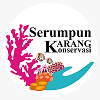The Mapping Resource Conflicts Based on Land Use and Land Cover Data in Kaledupa Island Marine Conservation Area of Wakatobi National Park
DOI:
https://doi.org/10.61548/cmj.v1i1.2Keywords:
coastal management, conservation, spatial analysisAbstract
Impact conflict social in a conservation area is generally more significant in the islands minor because competition limits space and resources. Objective study This is a complete stakeholder analysis of the interests (stakeholders) involved in the utilization of land and resources in nature. Data used in studies mapping conflict social This consists of two types, namely qualitative data related to the existence of the stakeholder's interests and spatial data. Qualitative data obtained from studies literature results in research, observation field, and interviews deep with the critical actor (key actor). At the same time, spatial data is an Island LULC Kaledupa 2016 (result in classification guided Landsat 8 imagery OLI), and derived MSP from map topography island (result in SRTM data analysis). Utilization stakeholder resource nature and management area on the Island Kaledupa shared into five categories: authority manager area conservation, Institution Central Government (Ministry of Maritime Affairs and Fisheries), government area Wakatobi, social economy local, and nongovernmental organizations. Mapping conflict utilization resource nature and management area on the Island Kaledupa is beneficial in formulating input consensus policy among all stakeholders.Downloads
Download data is not yet available.
Downloads
Published
2023-06-02
Issue
Section
Articles
License
Copyright (c) 2023 Coastal and Marine Journal

This work is licensed under a Creative Commons Attribution-ShareAlike 4.0 International License.

This work is licensed under a Creative Commons Attribution-ShareAlike 4.0 International License.
Copyright Transfer Terms
- The author in submitting online understands that if the manuscript is accepted for publication, the copyright of the manuscript will be given to the Coastal and Marine Journal as the publisher of the journal.
- Copyright includes the exclusive right to reproduce and distribute articles in all forms of media, including reprints, photographs, microfilm and other similar reproductions, as well as their translations.










